[Watching Korean dramas and talking about South Korea] "Men and Women": The Unfinished Road of Gender Education in Korean Dramas
When it comes to conservative Korean society, many people may immediately think of their hostility to the "LGBT community", but Korean dramas seem to be another world. In recent years, the subject matter of Korean dramas has become more and more diverse, and it is not uncommon to talk about gay-related issues or content. In 2020, "Supper Men and Women", broadcast by JTBC, is about a heterosexual chef pretending to be gay and producing a reality talk show with his favorite female producer. The bold theme with the theme of "gay men" not only succeeded in making this play arousing discussion, but also scored 1.5% in the first episode, which is a remarkable rating.
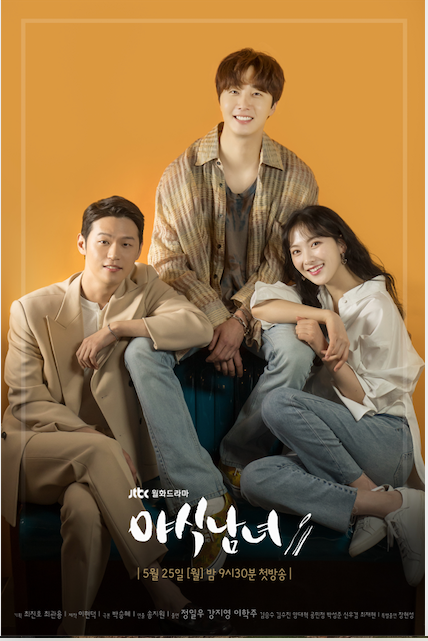
However, with the appearance of gay-themed Korean dramas, does it mean that Korean society has been able to accept the "LGBT group"? Or is it just a reflection of Korean society, and Korean dramas still need to be used to "promote" the concept of gender equality? This time [Watching Korean Dramas and Talking About South Korea], I will briefly talk about a few Korean dramas that are representative of gender issues and the current situation of South Korea facing the "LGBT community".
"Sook Hee, Jung Hee", who was "asked for an apology", had a difficult start for gay-focused Korean dramas
Regarding the history of gay Korean dramas, the author has not found relevant documents, but according to a report on the gay Korean drama "The Temptation of Sadness" ( 슬픈유혹 , 1999) in the Joongang Daily , we can know that long before gay men, female Comrades have already made their way to the stage of Korean dramas. Although it is uncertain whether the "Sook Hee, Jung Hee" (속희정희, 1997) mentioned in the article is the first Korean drama to touch upon gay issues, it is at least certain that it is one of the forerunners.

Compared with the length of more than 10 episodes of ordinary Korean dramas, "Sook Hee, Jung Hee" is actually just one of the 29 episodes in the "SBS 70 Minute Drama Series" (SBS 70분드라마, 1997), which is about an hour long. Articles. But this short one hour was enough to anger the conservative society of South Korea at that time.
The plot of "Sook Hee, Jung Hee" mainly describes a pair of originally happy lesbian couples, Sook Hee and Jung Hee, who were harassed by an alcohol-addicted photographer and deceived by TV station personnel respectively. After experiencing twists and turns such as being coerced and kidnapped, the two finally found each other and drove a stolen bus to the end of the world (the actual picture at the end is "like Icarus in Greek mythology, facing the sunrise") .
However, this drama, which mainly condemned the horror of lovers and bloodthirsty media, and ended with "A lover is married", was ordered by the then Korean Broadcasting Commission (방송위원회) for "naked gay scenes". Apologies to the audience, and even when the same series of dramas were reruns the following year, they were directly replaced and no longer broadcast .
Perhaps it is the disadvantage of lesbian dramas that make it more difficult to challenge the more taboo gay issues. Korean dramas related to gay men did not appear until 1999, and this work born at the end of the century is "The Temptation of Sadness." ".
The first gay Korean drama "The Temptation of Sadness" was born to "connect the divisions"
"If the last century was a century of ruptures, then I think it is necessary to reconnect everything that was broken in the new century." Producer Biao Minsu (표민수, 1964~) dreamed of reconciling a divided society. Together with writer Noh Hee-kyung (노희경, 1966~), at the end of the 20th century, he completed "The Temptation of Sadness".
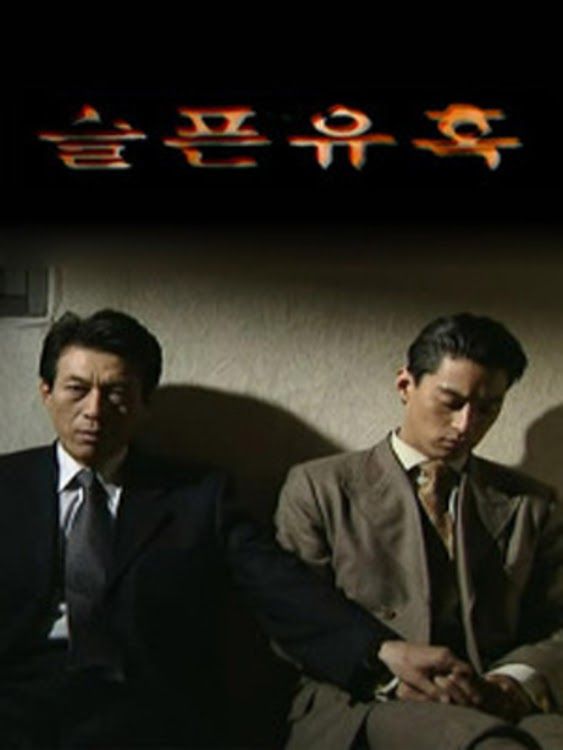
If you have watched "The Life of a Witty Doctor" (슬기로운의사생활, 2020), you may be familiar with Kim Gap-soo (김갑수, 1957~) who plays the director. In fact, he has rich drama experience and is also one of the founders of gay Korean dramas. In "The Temptation of Sadness", he plays a 40-year-old married middle-aged man who falls in love with a 20-year-old younger generation (Ju Jinmo, 주진모1974~) who is 20 years younger than himself and sent from the US headquarters.
As concise as "Sook Hee, Jung Hee", "The Temptation of Sadness" has only 2 episodes, but the content involves complex issues such as traditional Korean men's responsibilities towards family, social perceptions, self-lust and comradeship; page) , the drama's ratings weren't great at the time, but it set another milestone for posterity.
In 2003, South Korea's first come-out artist Hong Xitian also appeared on the stage of the Korean drama "Complete Love" (완전한사랑, 2003), playing the role of a gay interior designer, becoming the first gay artist to perform in a Korean drama. In 2005, the film "The King's Man" (왕의남자, 2005) was released with a box office record of $74.5 million, while the 2007 "Coffee Prince No. 1 Shop" (커피프린스1호점, 2007) featured a woman disguised as a man. The plot is also regarded as a type of gay Korean drama.
Although under the charm of the famous actor Cha In-pyo, the ratings of "Complete Love" once exceeded 30%, but it still has to wait for a family drama in 2010 to officially open the discussion space for gay issues in Korean society.
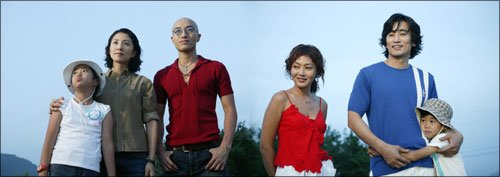
The "beautiful life" in the play and the "homophobia hell" outside the play
A much-anticipated internist goes through a secretive life and finally comes out to his family. The Korean drama "Life is Beautiful" (인생은아름다워, 2010) focuses on the plight of gays in a conservative society, and speaks for many gays who are ignored and oppressed by mainstream society. Not only the number of episodes is as many as 63 episodes, but the plot that appeals to family affection is also closer to the life of ordinary people. During the broadcast, it also overlapped with the "Seoul Queer Culture Festival" (서울퀴어문화축제), and recorded an average rating of over 19%.
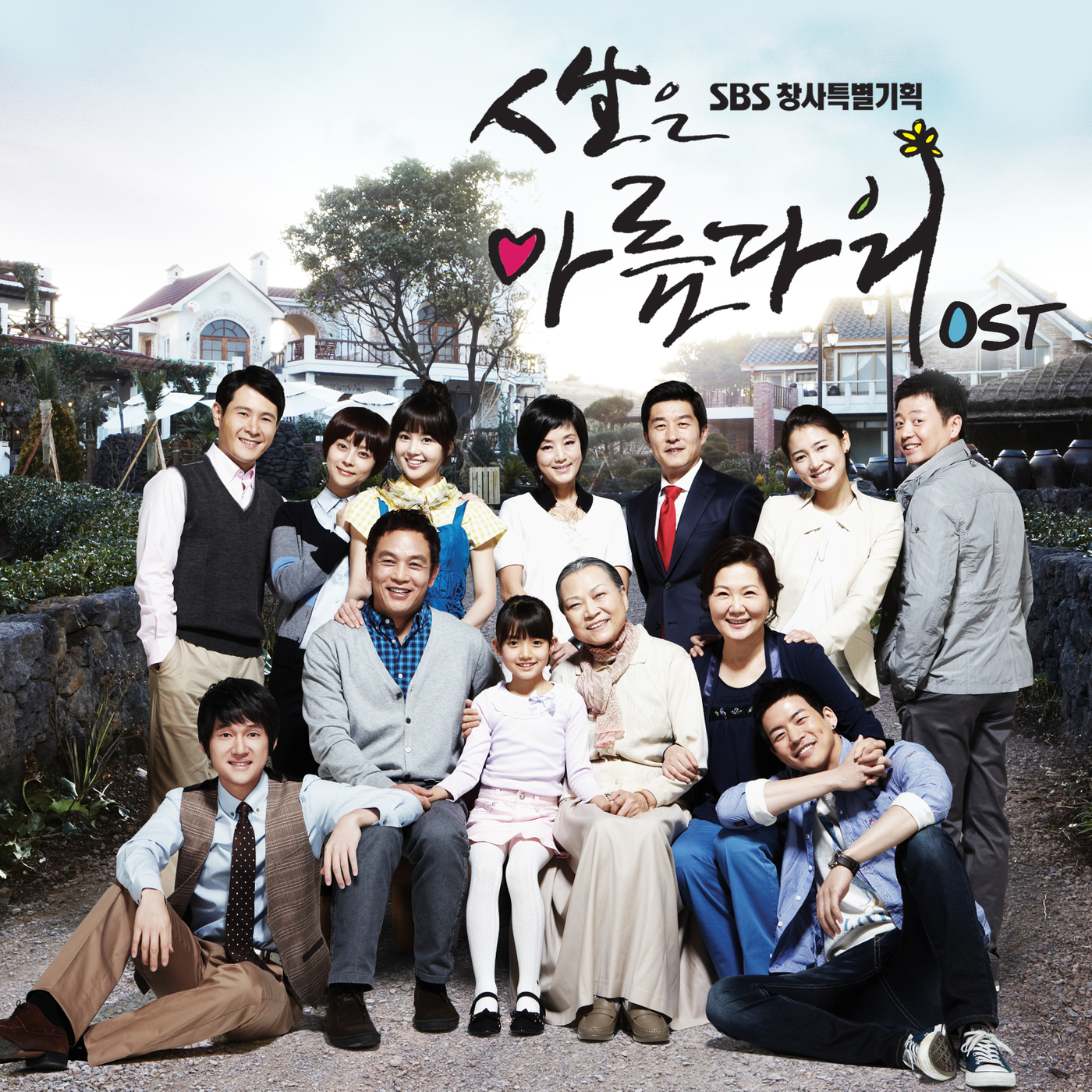
However, the big tree attracts the wind, and the splendid viewing performance of "How Beautiful Life" has also attracted a lot of criticism. In addition to the male-male kiss scene in the play, which is considered to be an "oppo" to increase viewership, some religious groups even criticized the play for "beautifying comrades and making society sick" , and even people advertised in the Chosun Ilbo. , criticized: "If my son turns gay because of watching this drama, and finally dies of AIDS, SBS will take full responsibility!"
Despite the overwhelming amount of criticism, the writer Kim Soo Hyun (김수현) still firmly replied: "This will not shake my faith." He also criticized Chosun Ilbo: "It is obviously a big newspaper, but it seems that as long as people pay, they can Putting out such an outrageous advertisement. Really..."
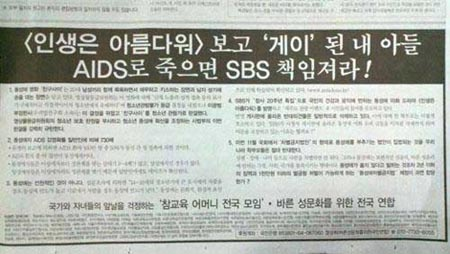
Although it caused such a big storm, Korean drama workers have not been deterred by it. With the great success of "How Beautiful Life", MBC released the work "Personal Orientation" with a total of 16 episodes in the same period. It also achieved good results with an average rating of over 13% on gay topics, making gay topics more fermented in the Korean drama industry.
Including the tvN work "Please Answer 1997" in 2012, the "School 2013" launched by KBS at the end of the same year, and the 2017 tvN "Witty Prison Life", etc., all began to add gay elements. In 2020, "Itaewon", which caused a boom in Taiwan Class", which further expanded the issue to "transgender people" and discussed LGBT issues positively.
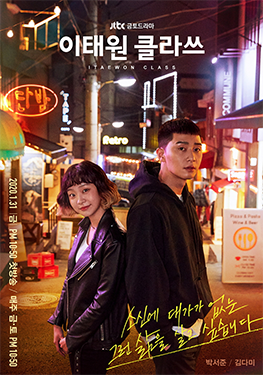
However, although the LGBT issue is very popular in Korean dramas, in the Korean drama market that is based on appearance, the images of many "beautiful men" often dilute the importance of the issue itself; at the same time, as the founder of lesbian dramas , but almost disappeared from the market. In addition, judging from recent social events, even if gender issues enter the minds of ordinary people through Korean dramas, and respect for pluralistic gender consciousness, it seems that there is still a long way to go before it becomes a mainstream social value.
The crisis of hatred and discrimination against the LGBT community in South Korea continues
In May of this year, the pneumonia epidemic in South Korea broke out for the second time. As Itaewon was accused of being a breach of epidemic prevention, the LGBT people who often came and went here immediately became synonymous with "bringers". Many people refused to come forward for screening because of fear of being "out of the closet", which became a major threat to epidemic prevention, forcing the South Korean government to finally come forward and promise to keep the identities of those under quarantine completely confidential.
In "Itaewon Class", while chef Ma Hyun-ri proved himself by diligently improving his cooking skills, a transgender prospective college student at Sookmyung Women's University, but because some parents and students kept calling and sending letters to the school protest. In the end, I had to reluctantly give up enrolling, and sadly left a message on the transgender forum, such as "I hope the society can accommodate diverse values and develop into a more constructive group."
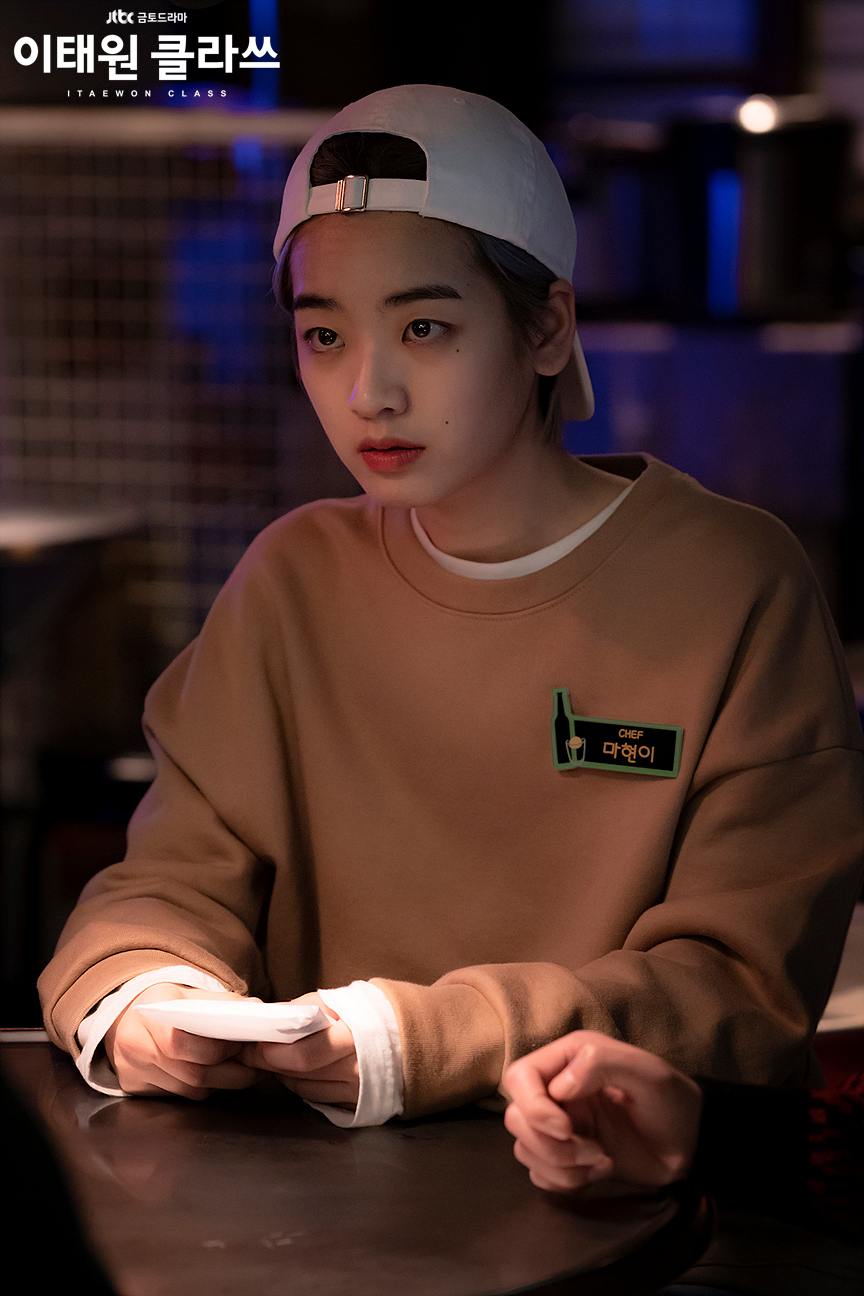
In addition to the small actions behind, some hostility is even undisguised. In August 2020, the LGBT friendly group "Rainbow Action" (성소수자차별반대무지개행동) advertised at Sinchon MRT station in Seoul, but it was damaged five times in a row within a month. The habit of hating the LGBT community remains.
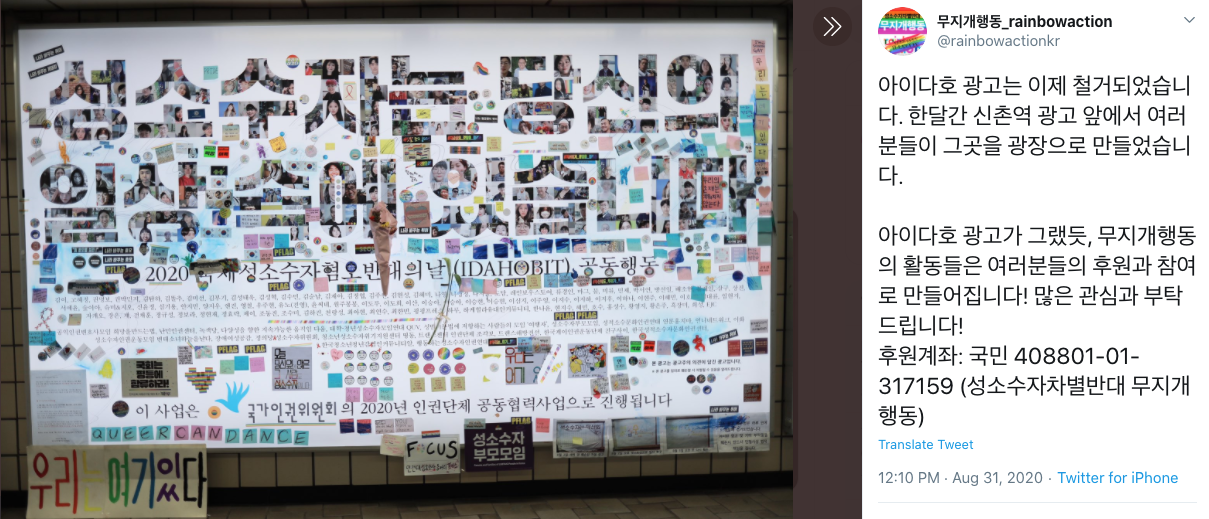
But amid the bad news, there are exciting developments. According to a report in June 2020 by the Pew Research Center, an American inter-polling think tank, compared with only a quarter of the approval rate in 2002, a survey in 2019 showed that 44% of South Koreans believe that Society should accept LGBT people, although not yet more than half, but there has been considerable progress.
"The story we wanted to tell was just 'one person likes another'.
I chose this because I like this kind of warm things. "
— Shin Won-ho, producer of the Korean drama "Reply 1997"
Like "Supper Men and Women", although it can't be called a good-looking drama in terms of acting skills, brilliance, plot arrangement, etc., the plot of "you must hide that you are heterosexual" cleverly presents the daily life of the sexual LGBT community; A Korean drama involving the LGBT group seems to have an additional layer of meaning and responsibility for "education".
As the saying goes: "Life is like a play." But the Happy Ending of gay Korean dramas is like an unrealistic fantasy and longing for the Korean LGBT community. The road to gender equality in South Korea still has a long way to go. The responsibility for gender education in Korean dramas has yet to be completed, but various signs have shown that the situation has begun to improve. Perhaps one day, "Rainbow" can also be proudly tied with "Taichi Flag" .
Like my work? Don't forget to support and clap, let me know that you are with me on the road of creation. Keep this enthusiasm together!

- Author
- More